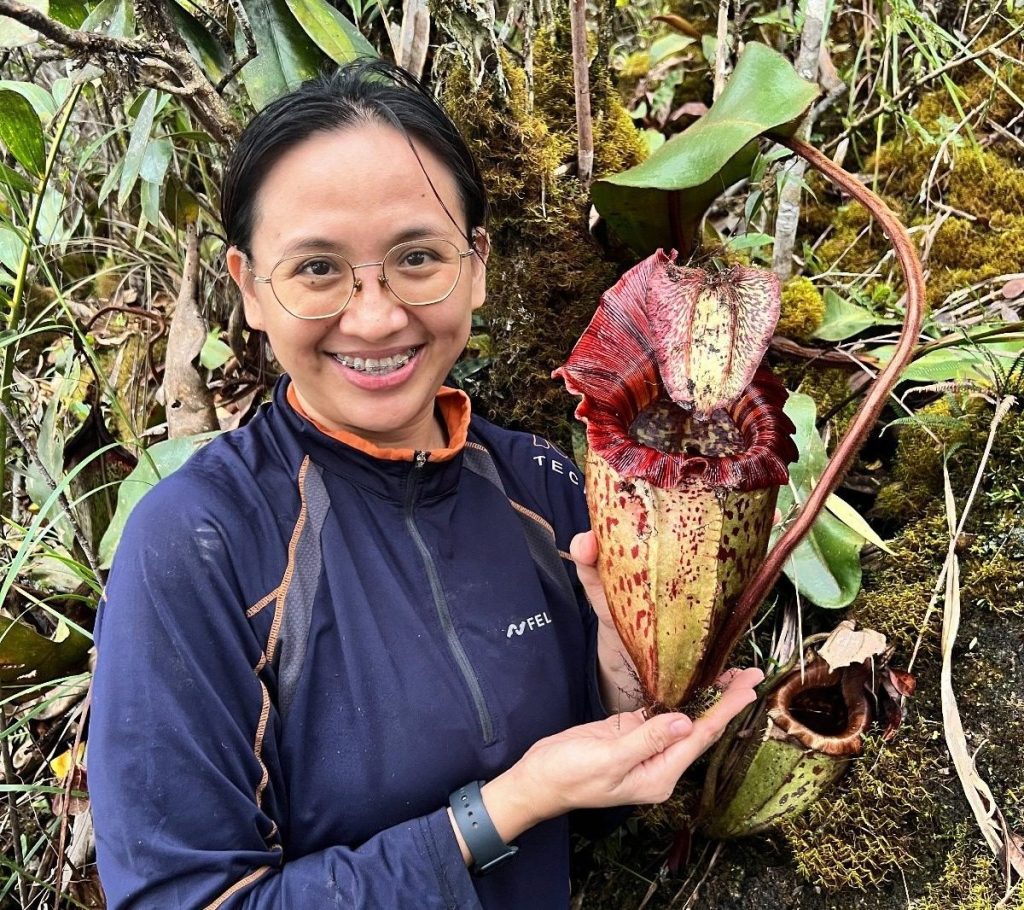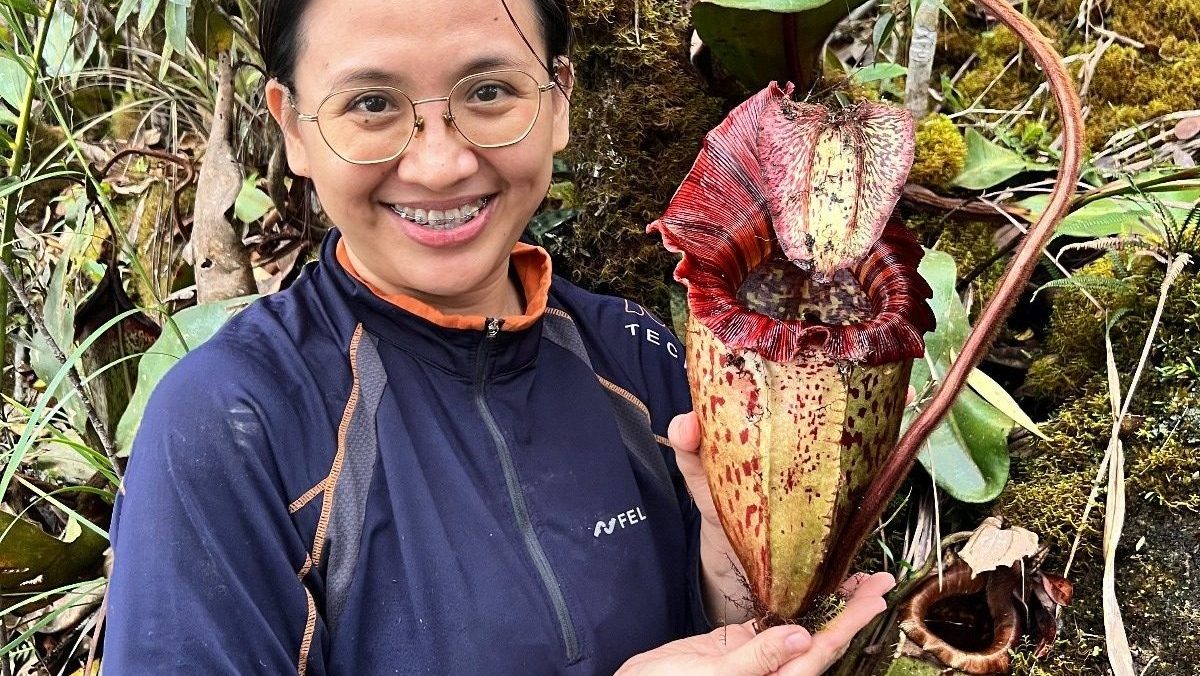KOTA KINABALU (Dec 18): A newly-discovered giant species of tropical pitcher plant, Nepenthes pongoides, has been named after the orangutan due to its striking resemblance to the great ape’s long, reddish hair. This extraordinary discovery was made by researchers from the Sabah Forestry Department’s Forest Research Centre (FRC) in collaboration with Australian botanists.
The plant, found in the ultramafic mountains of central Sabah, stands out not only because of its size but also because of its unique appearance. Its long, dark red hair covering the plant’s pitchers mirrors the appearance of an orangutan, prompting the researchers to honor the endangered species by naming the plant after it.

The discovery was the result of years of meticulous research and collaboration. FRC’s Alviana Damit worked closely with Dr. Alastair Robinson, an expert in the Nepenthes genus from the Royal Botanic Gardens Victoria in Melbourne. They located and documented this plant in its natural habitat, navigating the challenging terrain of the mountains, where access is highly restricted.
Despite first being photographed in 2004, the species remained unidentified for many years. It wasn’t until 2018, when more detailed photos were taken, that experts began to suspect it was an unknown species. The team’s expedition, initially scheduled for 2019, was delayed by the COVID-19 pandemic, but the additional time allowed them to refine their plans and secure necessary approvals.
In 2023, the team finally confirmed their discovery. The plant’s remarkable features, including its long red hair and large size, left no doubt that it was previously unknown. During their expedition, they also discovered various animals, such as beetles, centipedes, and even a freshwater crab, trapped inside the plant’s pitchers.
Nepenthes pongoides is a critically endangered species, with only 39 mature individuals documented across two sub-populations. Its limited population and the threat of poaching make its future uncertain. The plant’s rare status and the naming of the species after the orangutan highlight the urgent need for conservation efforts in Sabah.
This discovery underscores the critical importance of preserving Malaysia’s unique biodiversity. Botanists like Alviana and Dr. Robinson are committed to ensuring that Nepenthes plants, which are part of Malaysia’s natural heritage, are managed and protected by local experts.
The full details of this exciting find were published in the Australian Journal of Botany. The research was funded by a grant from the International Carnivorous Plant Society and the National Conservation Trust Fund of Malaysia.


